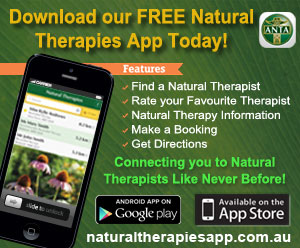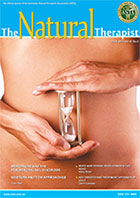News Categories
ANTA Response to NHMRC CM Guide for General Practitioners
The NHMRC has released a Guide in an attempt to assist GP's to discuss Complementary Medicine (CM) with their patients.
Whilst there is increasing recognition and support from GP's for CM with several integrating their practices with CM practitioners, there are very few GP's who have had formal training in CM.
The guide provides some very basic information for GP's however it fails to acknowledge that CM practitioners have completed formal training and are qualified to provide detailed advice on CM.
To become a member of ANTA applicants must complete as a minimum, a course accredited by The Australian Skills Quality Authority (ASQA), the national regulator for education and training to ensure nationally approved standards are met.
The guide suggests it is difficult to define CM and states the guide is aimed at the use of vitamins, mineral, herbal, aromatherapy and homeopathic remedies. The definition of CM provided in the guide shows a lack of understanding of CM. The scope of CM is much wider than what the guide suggest and includes:
- Acupuncture
- Chinese Herbal Medicine
- Nutritional Medicine
- Naturopathy
- Remedial Massage
- Myotherapy
- Aromatherapy
- Homeopathy
- Western Herbal Medicine
The above CM disciplines all have government accredited courses and are recognised by ANTA for membership and accreditation.
Some GP's use the term "integrative medicine" when combining the above CM modalities with their practice and the guide makes no reference to this.
The guide states more than two thirds of the public use CM and the public view CM as a holistic approach to health. ANTA concurs with this statement.
The guide suggests some consumers may be relying on misleading information when deciding whether CM is an appropriate health care option. ANTA recommends the public should consult with a CM practitioner who is an ANTA accredited and trained professional for advice on CM.
ANTA provides members with access to the latest global scientific CM information and CM research databases to ensure they are kept up to date with the latest developments in CM.
The guide suggests GP's and the public may not be aware of the potential reactions of CM with conventional drugs/medicines. ANTA members have full access to an interactions database developed in partnership with the University of Sydney, Faculty of Pharmacy covering over 700 herb-drug, supplement-drug, and food-drug interactions. The interactions database is updated weekly. Most GP's would not be aware of CM and interactions and to be assured of the latest advice regarding interactions, ANTA recommends the public should consult with an ANTA accredited member.
The guide advises the most common reason patients have not discussed the use of CM with their GP is that the GP has not asked them about it. ANTA believes this is a valid reason as most GP's have little knowledge of or training in CM.
The guide touches on the regulation of CM however, this section of the guide is not up to date with the latest government regulation initiatives and developments involving CM.
The Council of Australian Governments (COAG) was established to achieve the strategy of pursuing and monitoring priority issues of national significance which requires sustained collaborative effort through the Standing Council on Health (SCoH), Australian Health Workforce Ministerial Council (AHWMC) and Australian Health Ministers' Advisory Council (AHMAC).
AHMAC has drafted a National Code of Conduct for health care workers and is undertaking public consultation on the legislative provisions necessary to enforce the national Code and administrative arrangements for public access on prohibition orders issued by government agencies. SCoH will provide a forum for governments to share best practice approaches with regard to health system management.
The National Code when adopted will regulate health care workers such as optical dispensers, paramedics, speech pathologists, counsellors, psychotherapists and also complementary medicine practitioners.
ANTA members are also required to abide by the ANTA Code of Professional Ethics which outlines the standards of practice and conduct required of members. The ANTA Code of Professional Ethics has been developed to defend public health and safety and protect the public interest, support the quality practice of CM and promote informed healthcare choices.
Whilst the guide attempts to provide very basic information to GP's regarding CM, the public can be assured their optimum health is the focus of every ANTA member.
Further information regarding ANTA, how to find your local your local ANTA practitioner, CM information, ANTA Code of Professional Ethics plus more, is available on the ANTA website www.anta.com.au or by downloading the ANTA Natural Therapies App www.naturaltherapiesapp.com.au ![]() .
.
Related:
Talking with your patients about Complementary Medicine – a Resource for Clinicians ![]()
Use our search facility to find what you're looking for on the ANTA website.

The Natural Therapist




